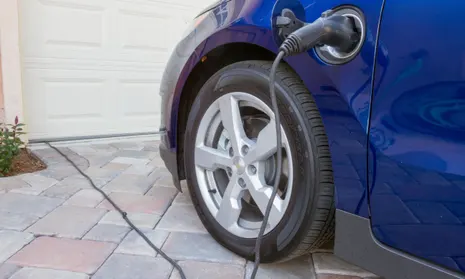
For widespread adoption en route to net zero, the government must assist in reducing the cost of new electric vehicles
Last summer, the government canceled its electric car purchase discount, claiming that its mission was complete. After providing subsidies for 11 years, the government believed that the electric vehicle revolution had been launched. However, as the country seeks to achieve its goal of banning the sale of new gasoline and diesel vehicles by 2030, this assertion is starting to appear overly confident.
Despite significant public support for the adoption of electric cars, recent data indicates a decline in current demand amidst ongoing economic challenges. According to Auto Trader, the largest car sales website in the country, inquiries about new electric vehicles have significantly decreased compared to last year.
Several factors may contribute to this decline. With high interest rates and inflation, the initial cost of a new electric vehicle is typically higher in the short term than that of a gasoline or diesel car. The recent drop in oil prices may have reduced the immediate motivation to switch. Moreover, despite repeated government commitments, the expansion of charging infrastructure is still inadequate and has failed to keep up with sales.
The government predicted that 300,000 publicly accessible charging points would be necessary by 2030 during Boris Johnson’s tenure. Achieving this goal would necessitate the installation of 100 chargers each day, but the present pace is thought to be around one-fifth of that. For families with low incomes who are unable to charge their cars in garages or driveways, the problem is exacerbated by current electricity costs and the significantly higher VAT rate charged at public charging stations.
Although sales of electric vehicles are growing, and corporate fleet sales are robust, in part due to incentives for employers, the proportion of electric vehicles in the new car market is not increasing as quickly as it should. To achieve widespread adoption in difficult economic times, the government must do more to make electric cars affordable by offering innovative grants and subsidies. Loans should be more affordable and easier to obtain to offset the upfront costs. The VAT rate of 20% charged on public charging points should be lowered to match the 5% domestic energy rate. Additionally, the decision by Chancellor Jeremy Hunt to terminate the road tax exemption for electric cars from 2025 should be reconsidered.




